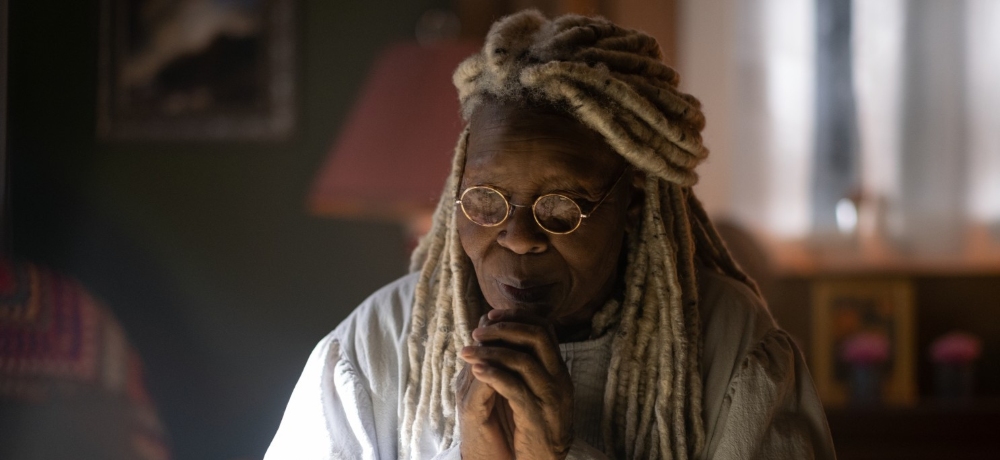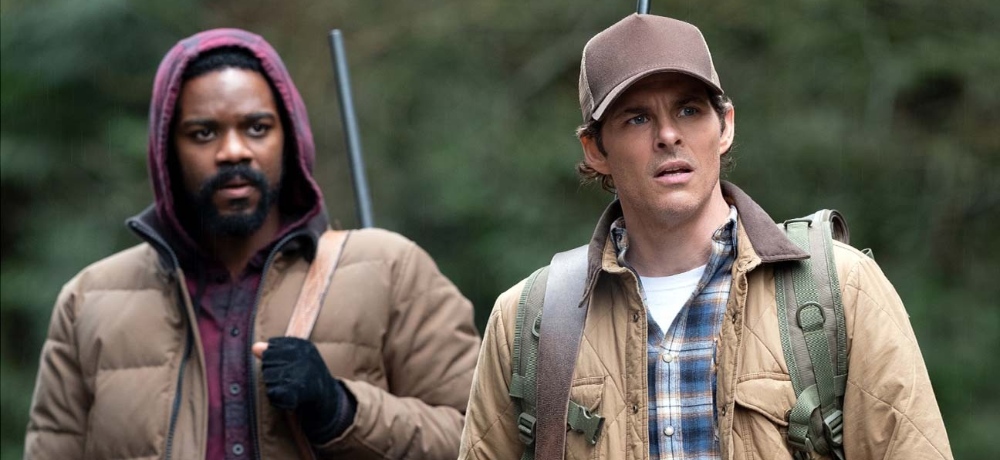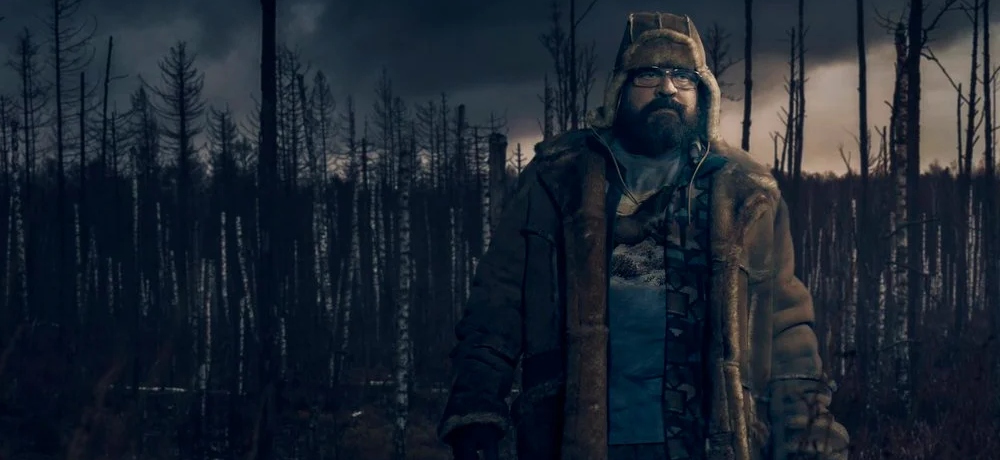






Last week, the first episode of the brand-new adaptation of Stephen King’s The Stand premiered on CBS All Access, and to mark the occasion, Daily Dead had the opportunity to speak with one of the series’ co-creators, Benjamin Cavell. During our interview, Cavell discussed the decision to restructure the storytelling approach for this new nine-episode limited series event, and the challenges that came with taking on The Stand in the first place. Cavell also chatted about the involvement of Whoopi Goldberg for this iteration of The Stand, and why it was necessary to update not only her character, Mother Abagail, but also Tom Cullen as well, for modern audiences.
New episodes of The Stand (2020) debut every Thursday, exclusively on CBS All Access.
Great to speak with you today, Ben. With this series, you're coming into something so huge in terms of this world and these characters, and it's Stephen King, and you've got all these fans out there, too. I'm curious what the pressure was like for you in terms of just trying to make sure that you guys are able to nail this the way that serves the story best, serves these characters, but ultimately is able to keep fans happy, but also can welcome newcomers into the fold as well.
Benjamin Cavell: The pressure obviously is enormous, or if not pressure, then maybe responsibility. I know I felt, not just me, but our entire cast and really our entire crew, every department, we all felt a responsibility to live up to this iconic source material. And that meant an enormous number of things, and one of them was that I think we had to be ready to tell our own version and really have the respect for the material to make it our own. So, we don't use the same linear narrative structure that the book does and that Mick Garris' and Stephen King's, their first adaptation, does. We obviously use this non-linear narrative structure in which we start in the aftermath of the plague and then go back and get little snippets of how people got to where they are.
But look, that was done for a number of reasons, one of the side effects of it is that it really does differentiate us from the book and from the original adaptation, but the real impetus behind making that change in the storytelling structure is that we didn't want to make people sit through three episodes of the world dying before we got to the meat of our story. Because for me, for us, The Stand is really not a book about a pandemic. Obviously, it has one in it, but Captain Trips in the book is really a mechanism to empty out the world so that the heroes can walk immortal. King has been very upfront about the idea that this is his attempt at Lord of the Rings in America.
So, it just felt like the most honest place to start after, and to go back and get little snippets of it. Also, Taylor Elmore, my dear friend who I brought in to partner with me in shepherding the show through production, he and I love Steven Soderbergh, we love Contagion, and we would say to each other, Contagion did two and a half hours of a slow roll of a pandemic and seeing all the ways in which that would play out, and we're not going to do it better than that, and it's beside the point of the story we're telling. It activates it, but then it's just not about that. And we felt good about the changes we were making, and we also felt that it was in some ways our responsibility to make them. Like I said, we know what the book means to people, we know what it means to us, and we also know that there's no real reason to revisit it, unless you have something interesting to do with it, or you have another direction to take it. So, for all those reasons, this is where we've come to.

You’re obviously no stranger to the world of episodic storytelling, but what was different about the process for you on The Stand versus what you traditionally do on TV?
Benjamin Cavell: In some ways, it was hugely different. And even one of the luxuries we had was that CBS, even though I never pushed it to the extremes, but they seemed open to making the show as few episodes or as many as it would take us to tell the story. Now, again, I never said, "Well, what if we did it in two episodes?" And I never said, "Well, what if we did it in 40?" So, I never pushed it too far. But unlike really on any other show I've worked on where it's open-ended, there's always a point in every season of an ongoing show where you say, "Okay, well, we know where episode nine ends and we know where episode 11 begins, so now we have to figure out an episode 10 that doesn't really move us from one and past the other, but that is a compelling hour of television."
That just happens on any show virtually, no matter how prestigious or wonderful or enjoyable, there are always moments in the season where it feels like you're treading water, and obviously the really great shows are able to turn those episodes into something interesting and memorable, and maybe it's a battle episode, but we just never ended up in it. We were in the very luxurious position of having every episode be able to be really integral to the overall narrative and to really advance us from one place to another, so that by the end of each hour, you really feel like circumstances are different than they were when you started, and that's wonderful. I hope it gives the series, the season really, a propulsive momentum from one episode to the next, from one through nine.
I know initially back when there was the '94 miniseries, Whoopi Goldberg had wanted to come in and play Mother Abagail, but couldn't due to different reasons. So, how great was it to be able to bring her in for this iteration and get her to play that character? It just feels like a missed opportunity back then, and it's really nice to see it course corrected all these years later.
Benjamin Cavell: I totally agree. Ruby Dee is wonderful in the original miniseries, though, and I don't really understand how Whoopi, who would have been 40 at the time, could have played the character then. But I'm very glad that she didn't because it left her wanting to do it so that when we came around, she was jumping at it. Look, the book is 40-plus years old, and there are some things about it that haven't aged as well as others. Some of it feels just impossibly precious and some of it, as I said, feels dated, like it wouldn't play in 2020.
And one of the big things that feels dated in the book is the characterization of Mother Abagail. When I came aboard the show three years ago, I knew that was something that we were really going to have to concentrate on updating, but knowing that Whoopi has been following the project and really wanting to participate in it gave us an enormous advantage because I knew that Whoopi wouldn't stand for the kinds of things that I was worried about. She was going to be just as devoted to the idea of updating this character as we were. She and I had all these conversations about what we weren't going to let happen. She would always say, "Well, we're not going to let her become a magical Negro," as she liked to say.
And the way we would stay away from that, or really the only way I think to stay away from that, is to just always remember that Mother Abagail is a real person and that before any of the events of the book and before she's being used as a messenger or as a conduit by whatever entity is communicating with her and through her, she lived a life. Whoopi would say to me, “Remember, she's buried husbands, she's cheated on husbands, she's run around, she saw the road, she's gambled, she's been drunk.” But I think Whoopi as a screen presence just brings a life and a sense of both wisdom, but also a worldliness and reality and humor that just follows her and infuses this character with a reality and a depth that, to me, just makes it a delight to watch.

You just mentioned finding ways to update this story and bring it into this new era that we're in that reflects where we're all at collectively as a society. With that in mind, I wanted to talk about the character of Tom Cullen. First of all, I think Brad [William Henke] is amazing in this role and I really appreciated that you guys approached this character a little bit differently and with a lot of sensitivity as well.
Benjamin Cavell: Yes. Completely agree. And Tom, in some ways, maybe even more than Mother Abagail, was the portrait that we felt needed real updating to put in 2020. The Tom Cullen from the book has always felt to me like Lennie from Of Mice and Men, just transposed into the King universe. And to embody the old adage, the cliche about a child trapped in an adult body, in my experience, that doesn't really exist, not in the way I understand people to mean it, which is having a child's lack of self-awareness. My experience of developmentally disabled adults is that they're not in the dark about whether they're developmentally disabled or whether they have differences from most of the people around them and challenges and stuff that they are trying to transcend or find ways to overcome.
So, I felt that the big change we needed to make to Tom Cullen was to really make it clear that this is a grown man. He's found a number of ways to live in the world, and obviously he has deficits and there's the suggestion in the book that at least some piece of what's going on with him is some kind of accumulated head trauma. He references head trauma in the book, and we have him do that in the show. And Brad, for all sorts of reasons, was the only person I thought of, the only person I called, and the only person we even discussed for the part.
As soon as we started casting, my first call was to Brad, because I know that he's such a committed actor and that he had so much soul. Also, Brad played at least one season in the NFL and at least one season in Canada, and he has some friends who are dealing with some really serious consequences of accumulated trauma. He actually showed me a part of a documentary about one of the guys he played with in high school or college, I think, and it was incredibly affecting. He told me a story about this guy, about sitting with him a few years ago, and the guy pointing at his own head and saying to Brad, "In here, it's still me," which is obviously a very poignant, heartbreaking thing to say.
But also, it felt to me that it was really supportive for the direction that we were going with the character. I'm really proud of what we found, and I'm really proud of that rehearsed speech that I wrote for Tom. It felt to me that it would be the kind of thing that a developmentally disabled man would need to exist in the world, and to have some degree of independence and be able to work when he could be able to support himself and clothe himself and that he would have to have a way to communicate what he was and wasn't capable of.
Another change we made that I'm very proud of is that, in the book, when Tom is sent on a mission, he is hypnotized, and you have the sense that he's being driven as a vehicle by a higher power. We really didn't want to do that, or I really didn't want to do that. I wanted all characters to have to explain to Tom Cullen, as we've characterized him, and in the ways that he's capable of understanding what his mission was. I really felt it was important to see Tom carry out that mission using the resources and the abilities that we know he has and that he's had to use to navigate the world. Frankly, I'm really proud of where that ended up, and I hope everybody else will be, because I think it's a really positive change to that character that we've made.
---------
In case you missed it, read Heather Wixson's impressions of the first four episodes of The Stand (2020) limited event series!
[Photo Credits: Above images courtesy of Robert Falconer/CBS and James Minchin/CBS.]